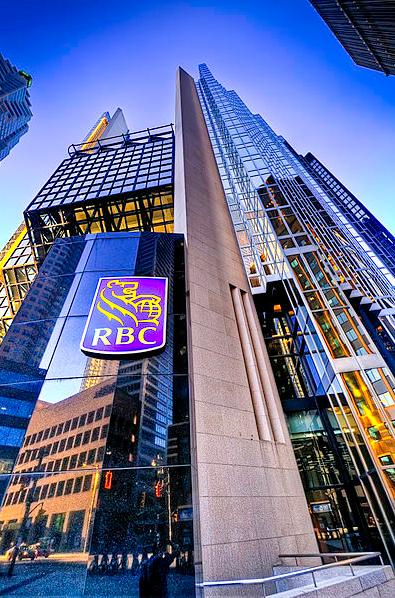
发布时间:2019-08-28
《传承宝典》21——管理您与银行关系的价值(上)

迈克负责全面管理整个Stonehage Fleming集团内外、所有战略和运营业务的发展与活动。他也是驻加拿大代表处的负责人,在那里他是一些全球超高净值家族的主要顾问(Key Adviser)。Mike于2017年4月正式加入Stonehage Fleming集团,担任合伙人以及加拿大家族办公室的负责人,任职于多伦多。此前,他在加拿大皇家银行(RBC)工作了30年,通过在5个国家任职,领导着横跨美洲、不列颠群岛和其他重要地区的国际财富管理业务。

一. 富裕家庭和家族办公室越来越意识到:



对一位个人来说,这个过程是令人厌烦的,有时似乎是荒谬的,但通常只是短暂的愤懑而已。而对于一个拥有众多家庭成员、横跨多个司法管辖区、以各种结构持有复杂资产的国际性富裕家族来说,这可能是一个需要耗费专业工作时日、持续数月的的重大工程。即便如此,相关银行可能也不会轻易满足,因为在许多不同国家、不同制度下收集的信息,都需要通过银行的主要合规部门进行整理和处理。是否开户的决定可能会由相关的银行总部来决定,而总部通常离“分行”非常远。

虽然建立一段与银行之间的新关系,现已是个众所周知的问题,但大多数家庭仍然认为他们现有的关系是理所当然的。但在银行内部,人们越来越多地对长期受人尊敬的客户提出质疑,因为这些客户在银行档案中的准确数据,已不符合他们目前的要求。理想情况下,当出现这种情况时,应该与客户进行一次对话,但是很难满足对交易历史证据的要求,也不能排除账户被突然关闭的可能性。在某些情况下,基金甚至可能因为一个错漏或曲解而被冻结,并向当局作出报告,这可能会给此家族的姓氏留下持久的印记。出于这个原因,我们强烈建议富裕家庭在管理现有的银行关系方面付出更多努力。仅仅让他们的客户关系经理、或账户所设立的分行了解到最新的发展、并假定他们能够管理好其组织内部相关数据的通信,已经不太足够了。家庭,特别是国际生意错综复杂的家庭,可能需要与其银行所有相关部门建立直接沟通的渠道,确保所有可能的决策者都能得到及时的信息和保证。这是关于家族在银行内部风险状况的管理。


Mike has responsibility for the overall management of all strategic and operational business development activities across the Stonehage Fleming Group. He is also Head of our Representative Office in Canada where he serves as a Key Adviser to a number of ultra and high net worth families globally.
Mike joined Stonehage Fleming formally in April 2017 as Partner – Head of Family Office Canada, based in Toronto, following a 30 year career with Royal Bank of Canada (RBC) leading international wealth management businesses across the Americas, British Isles, and other key geographies through postings in five countries.
The somewhat surprising truth is that it is now much more difficult for a wealthy international family to open a bank account than for an ordinary individual, as banks put in place ever more extensive compliance procedures to avoid falling foul of the regulators, in the fight against money laundering. Many families have experienced precisely this problem and it has often come as a shock. Their wealth has generally made the normal obstacles of life easier to navigate rather than more difficult. They are used to being treated with respect, rather than suspicion and to people falling over themselves to get their business, rather than subjecting them to a demanding approval process.
Over the last twenty years, the hitherto small matter of opening a bank account has become a time consuming, costly and irritating process. The requirements of regulators, particularly anti money laundering legislation, involve more and more documentation, verification and references, so that the banks may be satisfied as to the integrity of the proposed account holders and the origin of the funds. For very good reasons, these checks have been shaped into mandatory processes, which must be followed, even where the people involved are already well known to the Bank and the source of funds is readily identifiable.
For an individual, the process is tiresome and sometimes seems absurd, but is generally only a passing irritation. For an internationally wealthy family with numerous family members, complex assets held through a variety of structures across several jurisdictions, it can be a major project requiring many hours of professional time, over a period of several months. Even then, the bank may not easily be satisfied, as information assembled in a number of different countries, each with different systems, is collated and processed through the lead compliance department of the bank. The decision on whether or not to open the account will likely be guided by the relevant head office, often very remote from the bank ‘branch’.
Whilst the problems of starting a new banking relationship are now well known, most families still take for granted their existing relationships. But increasingly questions get raised within banks about long standing and highly respected clients, where the precise data on the bank’s files does not meet their current requirements. Ideally, when such a situation arises, a conversation will be opened with the client, but requirements for historic evidence of transactions can be difficult to satisfy and the possibility of accounts being precipitately closed cannot be ruled out. In some cases, funds may even be frozen as a result of an error or misunderstanding and a report made to the authorities, which may leave a lasting mark against the family name.
For this reason, wealthy families are well advised to dedicate more effort to the management of existing banking relationships. It is no longer enough to keep their relationship manager, or account holding branch, abreast of developments and assume that they will be able to manage the communication of the relevant data within their own organization. Families, particularly those with complex international affairs, may need to open up direct communication channels with all the relevant departments of the bank, to ensure all potential decision makers are kept informed and reassured. This is about the management of the family’s risk profile within the bank.
该文章转载自雷梭勒家族办公室,如有侵权,敬请告知删除。
Sooswiss为您提供
瑞士方向私人管家式的定制服务:
1)家族传承 2)财富管理 3)瑞士投资
4)居留计划 5)税务优化 6)家族治理
更多资讯请登录网站 www.sooswiss.com
